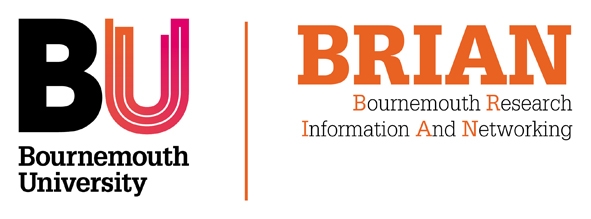
You’ll all be really glad to know that BRIAN is now up and running! If you encounter any issues, please do send an email to BRIAN@bournemouth.ac.uk.
Latest research and knowledge exchange news at Bournemouth University

You’ll all be really glad to know that BRIAN is now up and running! If you encounter any issues, please do send an email to BRIAN@bournemouth.ac.uk.
Many of today’s politicians appear to appeal to the basic human need for safety, presenting their versions of strong leadership as the best hope for order and safety in a fearful world of growing instability and risk. Much evidence confirms that this appeal is certainly an important factor in the political landscape.
But alongside this, other psychological dynamics are currently influential in a number of Western democracies – particularly in attracting people to support populist leaders and their agendas.
One of these – which is of particular relevance to the impeachment trial of the US president, Donald Trump – concerns the pleasure and excitement that some citizens appear to find in a leader who breaks rules and ignores taboos. These transgressions can come in various forms, such as controversial statements, unconventional lifestyles or disrespectful approaches to the political process. But they can also extend to improper activities and abuse of power – such as those detailed in the impeachment charges against Trump – or anti-democratic activity and violence.
I suggest that support for this kind of leader can be understood as “identification with the transgressor”. This is an idea modelled on the concept of “identification with the aggressor”, a term coined by the psychoanalyst Anna Freud in 1936. Since then, psychologists have used the concept to understand a range of behaviours, including our tolerance of or collusion with bullies.
Different types of transgressive leader can appeal to transgressive parts of ourselves. Like others before him, the psychoanalyst Sigmund Freud, Anna’s father, observed that some measure of resentment towards authority and of a longing to cast aside the rules, is a universal feature of the human psyche. In its development since Freud, the psychoanalytic tradition has examined how this longing is a legacy of the painful process of emotional development we each undergo very early in life as we come to accept the limits placed on us as requirements for membership of human society.
Where there are good reasons to think that normal political processes are failing, many people can feel a surge of gratitude towards a leader who breaks with some conventions with the aim of bringing more integrity and legitimacy to political life. Lech Wałęsa in Poland and Vaclav Havel in Czechoslovakia, and others who led the way out of totalitarianism for countries in the Communist bloc, were certainly transgressors within the political worlds they confronted. They could be identified as a force for good in a corrupt or sclerotic system.
But given our built-in ambivalence towards authority and rules, we can also identify with political leaders whose transgressions are driven at least in part by more destructive impulses. While promising their supporters a better world, these leaders use rhetoric that focuses on the urgent need to attack existing authorities and destroy existing arrangements, with little real attention paid to how to replace them.
One example is a coup leader who, once in power, has little plan for bettering their country. At worst is the leader free of most if not all moral constraint, who is contemptuous of international standards of conduct, and unconcerned by the human costs of his or her own conduct.

Therefore, one psychological question hanging over the US impeachment proceedings is the extent to which Trump’s support base will judge him negatively over the events at the centre of the impeachment trial. When Americans head to the polls in November 2020, how many will be inclined to enjoy Trump’s truculent dismissal of any criticism, and his capacity to brazen it out?
Remember, evidence of Trump’s questionable moral conduct was available to the US electorate in 2016. Following the release before the election of a videotape in which he boasted about groping women without their consent, 91% of those likely to vote for Trump said in a CBS/YouGov poll that the tape didn’t change their view of him. And Trump was elected.
The refusal by many voters to censure Trump for his transgressions has a powerful psychological basis to it in the wish to break free of authority. This can also be enjoyed without the guilt that would, for most people, usually accompany an assault on widely held values.
That’s because a leader like Trump offers an opportunity to combine transgressive pleasure with the moral high ground. This emotional package is offered to those who identify with Trump’s (somewhat erratic) self-presentation as a fusion of pleasure-seeking rebel and visionary saviour, leading an insurrection against the corrupt authorities – “the swamp”.
The eulogistic book on Trump by Conservative commentator Ann Coulter is one of many demonstrations of how much his supporters are energised by the wish to attack the “establishment” for their own alleged transgressions. Of course, not all Trump supporters feel this way, or support him for the same reasons.
This populist attack on the established elite can enable the supporters of the transgressive leader to feel that they are on a moral crusade, as well there for a pleasure kick. This could be a powerful aid to Trump in the coming election. We should expect such a transgressor figure to continue attracting strong identification and support, unless challenged by a leader who can somehow disrupt the transgressor’s psychological relationship with their support base.![]()
Barry Richards, Professor of Political Psychology, Bournemouth University
This article is republished from The Conversation under a Creative Commons license. Read the original article.
In the hard-nosed world of journalism, admitting to suffering from Post-Traumatic Stress Disorder (PTSD) has traditionally been taboo – a sign of weakness never to be admitted to colleagues in the newsroom where the remedy was often a stiff drink or two. Despite repeated efforts over the past decade to draw attention to the dangers of mental illness faced by foreign correspondents, that stigma has not gone away.
It can only be hoped that may change now that one of the BBC’s most high-profile correspondents, Fergal Keane, has shared publicly the PTSD he has been tussling with privately for several years.
The BBC announced that after decades of covering conflict, its veteran war reporter would be changing his role from that of Africa editor to “further assist his recovery”. The corporation’s head of newsgathering, Jonathan Munro, said: “It is both brave and welcome that he is ready to be open about PTSD.”
Keane is not the first correspondent by any means to have shared in public the impact that covering a relentless diet of conflict, crisis and disaster can have on even the most resilient human being. His BBC colleague Jeremy Bowen, Middle East editor, spoke about his own diagnosis of PTSD in 2017, characterised by bouts of depression related to his work.
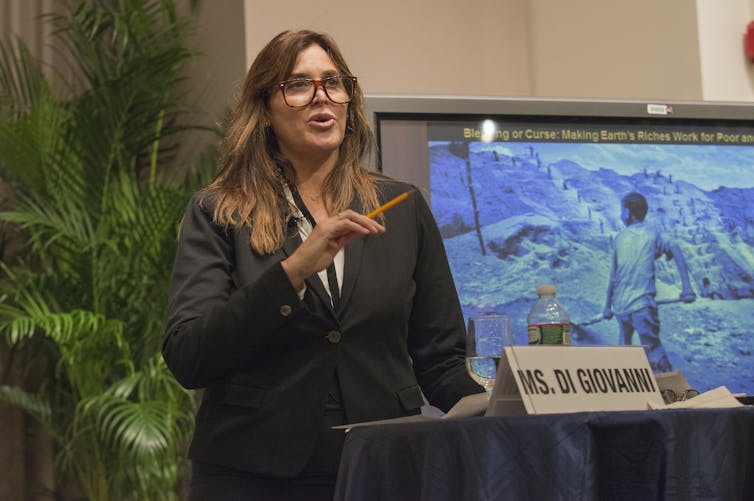
Renowned foreign correspondents such as Janine di Giovanni have also written movingly about the effects of PTSD. In her 2011 memoir, Ghosts by Daylight, she confessed that crisis had become normality and “this real life, with all its sharp edges was terribly difficult”.
Almost two decades ago, research by South African psychologist Anthony Feinstein underscored the importance of efforts to introduce structured trauma training and counselling into news organisations. His first major study of 140 war journalists published in 2002 found that they had significantly more psychiatric difficulties than journalists who did not report on war.
In particular, the lifetime prevalence of PTSD in journalists who cover war was similar to rates reported for combat veterans, while the rate of major depression exceeded that of the general population. In 2018, Feinstein conducted a retrospective study of PTSD data collected over 18 years from journalists who have covered conflict across four continents.
Between 1999 and 2017, data had been collected from 684 journalists covering stories ranging from the 9/11 attacks and the Arab Spring to drug wars in Mexico and the refugee crisis in Europe. The data showed that the majority of the correspondents did not display prominent symptoms of PTSD at any one moment in time. But over a longer time-frame (many correspondents were spending well over a decade covering conflict) the data confirmed that rates of the full PTSD syndrome can approach those experienced by those engaged in actual combat – and he cautioned that news organisations could not afford to be complacent when it came to their duty of care.
Large news organisations such as the BBC and Reuters have made great strides in recognising the issues associated with PTSD and providing both training and support. This has been reinforced by the work of a US-based global charity, the Dart Centre for Journalism & Trauma which offers a range of best practice guidelines and resources to safeguard the mental well-being of journalists.
This is not just about those on the frontline of foreign reporting. Almost every journalist will end up covering traumatic news events in their career – whether this be sexual violence, traffic accidents, or criminal trials. Most recently, there is a growing awareness of the dangers posed to journalists in the newsroom monitoring incoming, raw user-generated content from the sites of conflict, terror and disaster worldwide – what has been dubbed the “[digital frontline]”.
It is a point that was highlighted in a 2015 survey by Eyewitness Media Hub. This major study on the issue surveyed 122 journalists around the world and concluded that:
Office-bound staff who used to be somewhat shielded from viewing atrocities are now bombarded day in and day out with horrifically graphic material that explodes onto their desktops in volumes, and at a frequency that is very often far in excess of the horrors witnessed by staff who are investigating or reporting from the actual frontline.
Slowly but surely, journalism courses at universities in the UK are becoming aware of the importance of trauma training before students enter this professional environment. We would like to think that the work we are doing at Bournemouth University through both education, research and professional practice – in conjunction with the Dart Centre, BBC and others – is starting to make a difference.
The aim is to create an awareness of how people caught up in traumatic news might react and how to conduct ethical interviews with victims and survivors of trauma. In addition, we feel it is only responsible to make our journalism students aware of the mental stresses that journalists are exposed to whether on the frontline or in the newsroom.
That doesn’t mean we should assume that every journalist who covers a distressing news story or handles sensitive material will develop PTSD. But it is important to do our best to build resilience and develop coping strategies so that journalists can bounce back stronger from the impact of covering distressing news.
As Keane’s case illustrates, PTSD can often present itself long after events. He has spoken and written about the effects that covering the 1994 Rwanda genocide had on him. It can only be hoped that the courage Keane has displayed in moving himself away from the frontline will send a signal that it is acceptable to recognise mental health issues in journalism.
Far from turning his back on the profession, according to the BBC he intends to “continue to provide original and compelling journalism” and hopes to draw on his experiences to guide and nurture young journalists. This can only be positive for the next generation of journalists.![]()
Stephen Jukes, Professor of Journalism, Bournemouth University and Karen Fowler-Watt, Senior Principal Academic, Centre for Excellence in Media Practice (CEMP), Bournemouth University
This article is republished from The Conversation under a Creative Commons license. Read the original article.
Jet lagged and dazed Professor Bennett is just back from another session of fieldwork in New Mexico at the newly created White Sands National Park. Previously a National Monument it was transformed into a Park by President Trump in December 2019 becoming the 62nd National Park in the USA. Not only does the name change involve an exchange of various land parcels with its military neighbours (White Sands Missile Range), but it also adds the words palaeontology and archaeology into the founding legislation and mission. This is in part a result of the research that we have been doing at White Sands since 2017. This was my tenth trip since January 2017 which is a huge investment of time, with more to come in the future. We have shown that fossil human footprints from the Late Pleistocene exist just below the surface at White Sands, how these humans may have hunted giant ground sloth, as well as pioneered the application of ground penetrating radar to the prospection of Ice Age footprints. We are currently examining a potential mammoth kill site, the early use of transport-technology and also resolving some outstanding issues with respect to dating these tracks work we are doing in conjunction with the USGS. Watch out for exciting updates in 2020.
The change in designation Monument to Park has huge implications for visitor numbers, federal resources and the local economy which will benefit annually by over $6 million dollars. Last year our work was captured in a French/Ger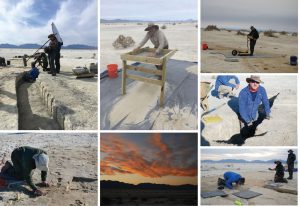 man documentary made by ARTE as part of the Terra X series. Interest in the site remains high and this season we had a TV crew from PBS America and Nova with us in the field. They are following our research team throughout the next nine months and will be filming here in Bournemouth at some point in the near future. The Director of the Smithsonian Dr Kirk Johnson is leading this programme and is now a fan of the site. The technological aspects of our work at White Sands are also due to feature on Ancient Mysteries Decoded available via the Discovery Science channel later this year.
man documentary made by ARTE as part of the Terra X series. Interest in the site remains high and this season we had a TV crew from PBS America and Nova with us in the field. They are following our research team throughout the next nine months and will be filming here in Bournemouth at some point in the near future. The Director of the Smithsonian Dr Kirk Johnson is leading this programme and is now a fan of the site. The technological aspects of our work at White Sands are also due to feature on Ancient Mysteries Decoded available via the Discovery Science channel later this year.
You may also have read about White Sands just before Christmas since it is the landing site for the new NASA Starliner. The missile range is also home to the Trinity Nuclear Test site. A few pictures ‘of my other office’ give you a flavour of the environment in which we are working.
Research Training Opportunities

We have some great events coming up to help support you in your research activities.
| Friday 31st January | RKEDF: Environment Narrative Writing Day |
| Tuesday 4th February | RKEDF: EndNote Desktop for Managing References and Writing for Publication |
| Tuesday 4th February | RKEDF: Good Clinical Practice ‘Lite’ |
| Tuesday 4th February | RKEDF: Building Evidence for REF Impact Case Studies |
| Wednesday 5th February | Royal Society Visit |
| Wednesday 5th February | RKEDF: Introduction to Impact |
| Tuesday 11th February | RKEDF: Overview of NIHR, CRNs and NIHR portfolio |
| Thursday 13th February | RKEDF: Writing Day – Systematic and Scoping Reviews |
| Wednesday 19th February | RKEDF: Advanced Literature Search Techniques |
| Thursday 20th February | RKEDF: Environment Narrative Writing Day |
| Tuesday 25th February | RKEDF: Research Ethics @ BU |
| Wednesday 26th February | RKEDF: Measuring the Impact of Your Research with Advanced Citation Tools |
You can see all the Organisational Development and Research Knowledge Development Framework (RKEDF) events in one place on the handy calendar of events.
Please note that all events are now targeted, so look closely at the event page to ensure that the event is suitable for you. In addition, most RKEDF events now require the approval of your Head of Department (or other nominated approver). Please follow the instructions given on the event page and the template email for you to initiate the booking request.
If you have any queries, please get in touch!
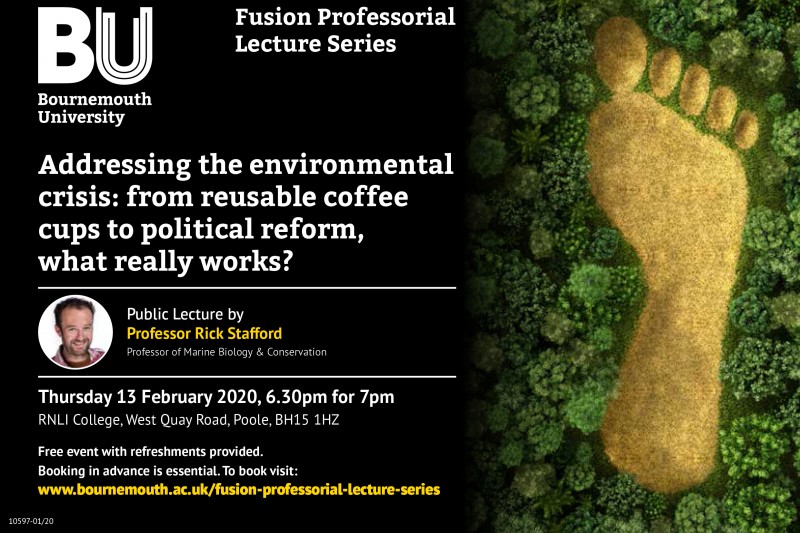
With so many reports and news stories about the environmental issues we currently face, including climate change, biodiversity loss and plastic pollution, which problems should cause us most concern and how can we tackle them?
A Bournemouth University (BU) academic will talk at RNLI College on Thursday 13 February to address these issues in the first of a series of free public lectures. BU’s Professor of Marine Biology and Conservation, Rick Stafford, will launch the Fusion Professorial Lecture Series with his talk, ‘Addressing the environmental crisis: from reusable coffee cups to political reform, what really works?’
Rick, from the Department of Life and Environmental Sciences, said: “It’s vital we address the environmental crisis properly in the very near future. This talk will bring together my research over the last two years and present a timely message that it’s not too late to act, and give a positive vision of what the future could be like if we do.”
Using his research, Rick will demonstrate that plastic pollution is a real threat, but has been overemphasised in order to maintain the economic and political status quo. His findings also show that climate change and biodiversity loss need large systematic changes in economic and political thinking to be successfully tackled, although nature-based solutions such as tree planting and a respect for nature are also important.
Rick will demonstrate the benefits to biodiversity and society of changing our approach to economics, and show that necessary changes will be advantageous to most people, both in developed and developing countries.
Rick added: “It’s very timely, and hopefully it will inspire people to support the necessary changes we need at local, national and international levels.”
The Fusion Professorial Lecture Series is free and open to the public, with six planned throughout the year, and cover a wide range of topics from BU academics.
Rick Stafford’s research began studying rocky shores, and developed into mathematical and computer models of animal behaviour. He currently works on topics as diverse as marine protected areas, fisheries, artificial reefs, as well as climate change and biodiversity loss.
The free to attend lecture takes place on Thursday 13 February, 6:30pm, and is ticketed. You can register for tickets on Eventbrite.

BRIAN is being upgraded and will be unavailable for use on Tuesday 28th and Wednesday 29th January.
The main improvements from this upgrade include:
The new and improved features will make BRIAN easier and simplier to use for everyone, whilst also providing a valuable tool to academics helping them record the impact of their research.
We will communicate on the blog as soon as BRIAN is up and running again.
 UK Research and Innovation (UKRI) has published new information about UK scientists, researchers and businesses’ ability to continue to participate in, bid for and lead projects in the European Union’s (EU) flagship programme Horizon 2020.
UK Research and Innovation (UKRI) has published new information about UK scientists, researchers and businesses’ ability to continue to participate in, bid for and lead projects in the European Union’s (EU) flagship programme Horizon 2020.
Following the Second Reading in parliament of the Withdrawal Agreement on 20 December, the UK has now stepped down its preparations for leaving the EU without a deal, with confidence that it will ratify the EU Exit deal by 31 January.
This means that EU award holders should continue to participate in their projects in the same way as they currently do, in line with the terms of their grant agreement.
The full article is available here – UKRI News
Two new links have been added to the Clinical Governance blog under the ‘Useful Links and Documents’ section which give further information and guidance as to attending an NHS Research Ethics Committee meeting for your project. The links are also provided below-
Remember – support and guidance is on offer at BU if you are thinking of conducting clinical research, whether in the NHS, private healthcare or social care – get in touch with Research Ethics. You can also take a look at the Clinical Governance blog for resources and updates.
The societal and economic impact of research is becoming increasingly important in academia, not only for REF purposes, but in funding applications. UKRI announced this week that they are removing impact pathways from their funding applications because impact should be embedded into the research process.
Together with Dr Katey Collins, Impact Champion for HSS, I am running a two hour workshop to explain what impact ‘outside of academia’ means, why it’s important, how to create pathways to impact, and how to evidence the impact your research has created.
If your research is already having an impact, the workshop will give you tools to help accelerate and capture that impact.
If you would like to attend the workshop, you can book here.
On Tuesday 11th February, Research Development & Support are running a 2 hour workshop to give an overview of the National Institute for Health Research (NIHR), Clinical Research Networks and the NIHR ‘portfolio’.
This workshop is designed to raise awareness of the benefits of the NIHR’s portfolio of research studies to BU and NHS partners. It will also explore the role of the NIHR Clinical Research Networks (CRN), with an emphasis on the set-up and work of our local network, Wessex.
The workshop will cover the requirements to be eligible for the NIHR portfolio, how to apply so that your study may be considered for adoption, and how to access the support of the NIHR CRN.
By the end of this workshop you will have an understanding about:
If you’re interested in attending then reserve your place via Organisational Development.
On Tuesday 4th February, Research Development & Support are running a 2 hour workshop on the standards of Good Clinical Practice. If you’re running your own clinical research, or are planning to in the future then this workshop is for you.
This workshop is designed to ensure that Researchers are equipped to conduct clinical research in accordance with the international standard.
The workshop will cover other standards and regulations, roles in clinical research, participant eligibility and data collection, safety reporting and closing down your study.
By the end of this workshop you will have an understanding about:
If you’re interested in attending then reserve your place via Organisational Development.
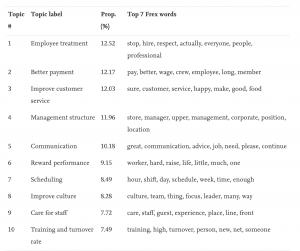
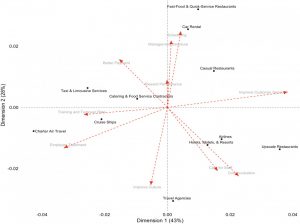 Annals of Tourism Research, Vol.80, https://doi.org/10.1016/j.annals.2019.02.012
Annals of Tourism Research, Vol.80, https://doi.org/10.1016/j.annals.2019.02.012
Download FREE Now https://authors.elsevier.com/c/1aSE6aZ3ER7Ql
The informational value of online employee reviews in tourism and hospitality research and practice. Online reviews can complement existing approaches offering access in a pool of opinion highly representative of the industry. The results of our analysis reveal that the unstructured form of reviews through topic analysis can efficiently capture important topics for employees and is in agreement with previous literature. As such it opens new avenues for researchers and practitioners since the intangible and heterogeneous nature of tourism and hospitality services can be measured with more direct data sources available to the decision makers, than cross-sectional questionnaires.
An interesting insight for managers in these industries is that the adaptation of management practices and improvement initiatives needs to be adjusted vertically (across business units) rather than horizontally (across the organization). The results of the analysis also provide an argument against the “one size fits all” approach (Hom, Lee, Shaw, & Hausknecht, 2017) in the management of service employees across tourism and hospitality industries and as such the incorporation of insights from satisfaction surveys in managerial practices need to be adjusted accordingly.
The Research Development and Support (RDS) invite all ‘new to BU’ academics and researchers to an induction.
 This event provides an overview of all the practical information staff need to begin developing their research plans at BU, using both internal and external networks; to develop and disseminate research outcomes; and maximising the available funding opportunities.Objectives
This event provides an overview of all the practical information staff need to begin developing their research plans at BU, using both internal and external networks; to develop and disseminate research outcomes; and maximising the available funding opportunities.Objectives
Indicative content
For more information about the event, please see the following link. The twelfth induction will be held on Wednesday, 25th March 2020 in Melbury House, 5th Floor, Garden Room.
| Title | Date | Time | Location |
|---|---|---|---|
| Research Development & Support (RDS) Research Induction | Wednesday 25th March 2020 | 9.00 – 12.00 | Lansdowne Campus |
9.00-9.15 – Coffee/tea and cake/fruit will be available on arrival
9.15 – RDS academic induction (with a break at 10.45)
11.25 – Organisational Development upcoming development opportunities
11.30 – Opportunity for one to one interaction with RDS staff
12.00 – Close
There will also be literature and information packs available.
If you would like to attend the induction then please book your place through Organisational Development and you can also visit their pages here.
We hope you can make it and look forward to seeing you.
Regards,
The RDS team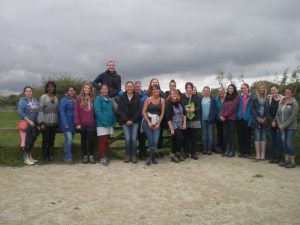

Bringing Science To Life
Do you have an amazing talk, performance or workshop that you would like to be included in the New Scientist Live 2020 programme? The organisers are looking for submissions that will excite, entertain and educate an audience of highly engaged science and technology lovers.
Based on visitor, speaker and exhibitor feedback, there are a few changes to this year’s event. The zones are being reformatted to include;
Alongside the theatres in these zones, will be a Debating Theatre and the Performance area will return after the success of last year.
This year’s event will take place on 15 – 18 October at ExCel London
Check out the highlights from 2019 here to find out why you should get involved in New Scientist Live 2020!
Submit your programme idea here
Deadline for submissions: Friday 31 January
If you would like advice on planning or submitting your application or to discuss ideas, please contact Adam Morris Engagement Officer publicengagement@bournemouth.ac.uk

BRIAN will be unavailable to users next week on Tuesday 28th January and Wednesday 29th January for a scheduled upgrade.
If you need any help using the new system or if you encounter any problems after the upgrade, please do send an email to BRIAN@bournemouth.ac.uk and a member of staff will be able to assist you.
Staff are reminded that the REF Mock Exercise 2020 author outputs nomination on BRIAN will take place between 24 Feb and 8th March. For more information and guidance, please get in touch with ref@bournemouth.ac.uk.
In the meantime, if you do have general queries relating to the upgrade, please get in touch with BRIAN@bournemouth.ac.uk
Further information will be available once BRIAN is up and running again following the scheduled upgrade.

Science has a long history of inspiring writers to imagine and write about what could be possible in the future, from Mary Shelley’s Frankenstein to Asimov’s Foundation series. Explore the blurring lines between scientific fact and fiction at the Royal Society’s late-night opening event at their headquarters at Carlton House Terrace in London on February 10th.
The Royal Society is the independent scientific academy of the UK, dedicated to promoting excellence in science, spending over £40 million annually across a range if the grant-making schemes. If you would like to find out more about them and their funding, there’s an opportunity here at BU on Wednesday February 5th , from 11:00 – 13:00, on the 7th floor of the Executive Business Centre.
The Royal Society’s Grants Operations Manager and the Grant Impact and Promotions Officer will deliver an overview of the society’s funding schemes and provide advice on putting together a successful funding application. Academics with a successful track record will also discuss their personal experiences, and there will be a Q&A session followed by a networking lunch.
For more information and to book, please see the staff intranet. If you have any queries, please contact RKEDF@bournemouth.ac.uk.

Reminder: British Science Festival 2020 applications closing soon!
Proposal deadline: Monday 17 February at 5pm
Each year, thousands of people come together to celebrate the latest developments in research and engage in open discussion about issues affecting our culture and society. Through a mixture of traditional and creative formats, it focuses on showcasing cutting-edge science and technology.
The Festival will be hosted by Anglia Ruskin University and will be taking place from the 8-12 September in Chelmsford and Essex. All events will be free to attend!
Call for proposals
The open call is an opportunity for anyone to submit an event idea. Festival proposals should be aimed at non-specialist adults (16+) with a broad interest in science. During the week, Festival events will take place in the daytime on the university campus, followed by events throughout the city each evening. To close the Festival, there will be a final celebration over the weekend. The programme is aimed at a range of formats from talks to drop-in activities and creative content that challenges perceptions of what science is and can be.
Proposal deadline: Monday 17 February at 5pm
More information including the application process and FAQs, can be found here.
If you’re thinking about submitting a proposal, please chat with the Festival team before completing the form.
Please contact anna.woolman@britishscienceassociation.org
Alternatively if you would like advice on planning or submitting your application or to discuss ideas, you can contact Adam Morris (Engagement Officer) publicengagement@bournemouth.ac.uk